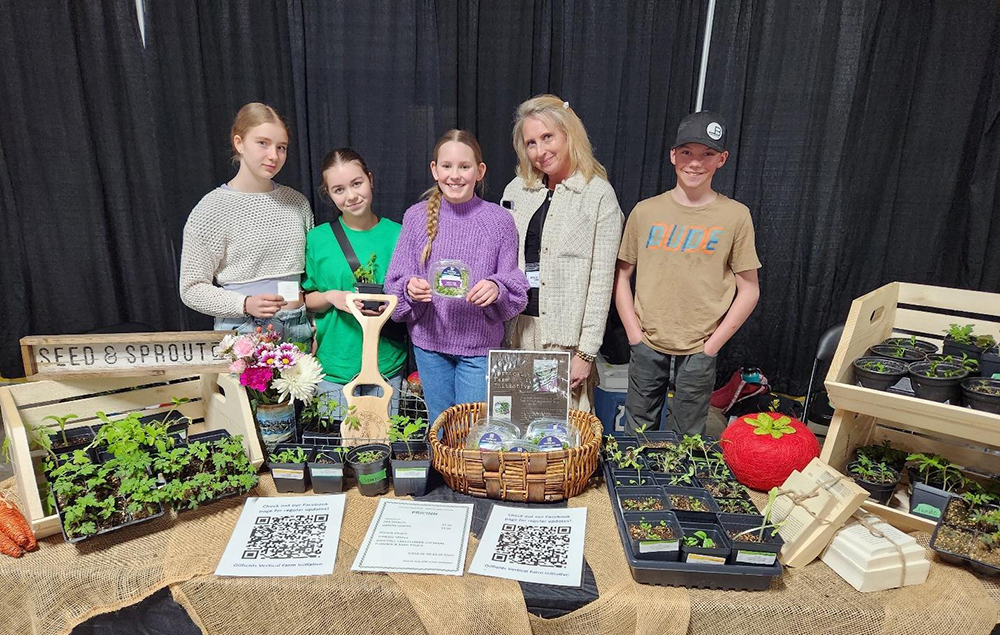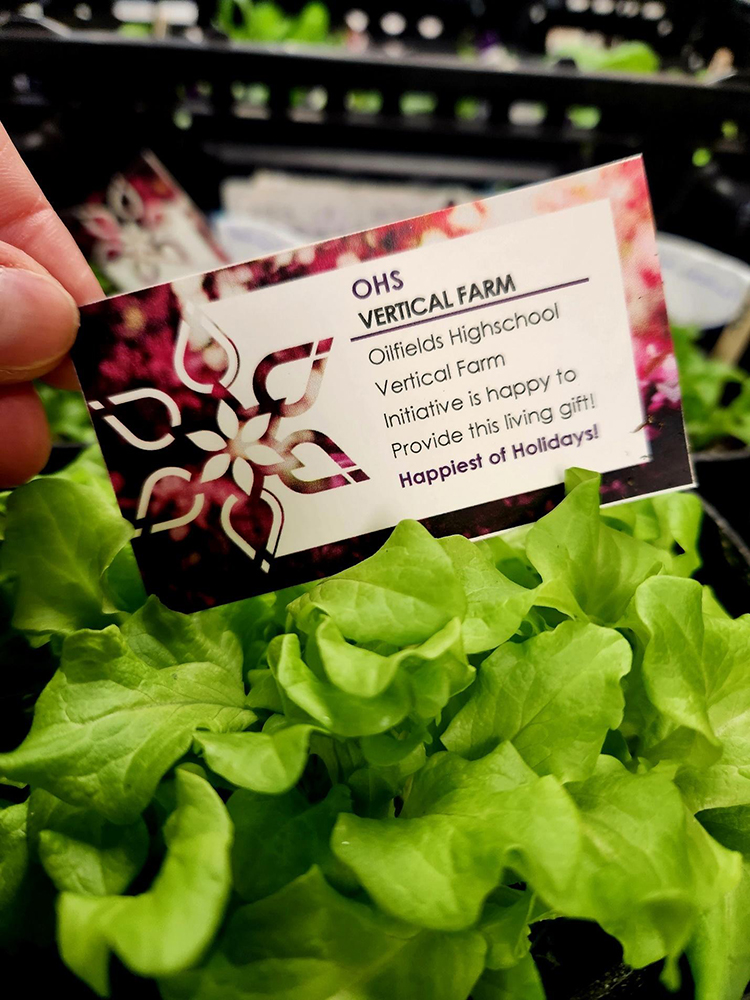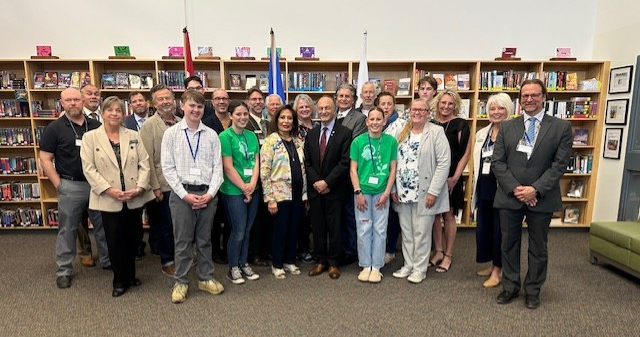
Oilfields High School Black Diamond, AB
Grant term, 2023-2024
Oilfields High School started a junior and senior course at the beginning of the school year, September 2023. The senior’s course is from grades 10-12, their work is applied by research assisting challenges with the Vertical Farm has been replacing the flooring, irrigation, solar panels, production, and education awareness to the public. These students will be mentors to other high schools.
Over the course they create presentations to share with one another in class that demonstrate their learning and outcomes. They are starting to identify effective practices and procedures that enhance the learning of how to grow food for their school and community. Each student is assigned one of the following components, facility operations such as how soil-based farming differs from hydroponics and aeroponics, how to use LED lighting, controlled heating and water systems, biochar and tailored nutrient solutions to yield the maximum crop without pesticides. Then at community markets, students can speak about the environment in which the produce was grown.

Through the hands-on experience the students gain to recognize the true environmental cost of growing produce from water and electricity costs to long-distance transportation avoidance. Knowledge is then shared among the group and can be used to demonstrate their own understanding of the concepts. As the senior students collect evidence through conversations, pictures and notes they reflect on, they can problem solve, use data analysis, experiment and design which is much more than a traditional garden. As the course expands year after year, the students will continue to build and deepen their understanding of the Vertical Farm based on the critical challenge answering the question: How can we create a sustainable, community connection to meet our food needs?


The junior students are grade 7-9 students who are already excited about learning how every member of our local community can live with a healthy diet. They learn the importance of food scarcity, the life process of plants, and vertical farming practices for a home-based growing system. This gives students a chance to transfer and apply their learning of what it takes to grow plants in a controlled environment. These juniors have started using a hydroponics tower in our classroom to produce tomatoes for our salads that are now provided in the school’s cafeteria. For students needing extra help, we have provided hands-on work. We are in constant cycles of planting, maintaining, and harvesting to prepare for our monthly community markets, local restaurants, local grocery stores, and the school’s cafeteria. The students would not be able to do all this without the Dig In! Seed Grant.
The student-led project is non-profit, yet the students must fundraise to keep the program going. Students, parents, and staff have gone to their first market, the students received positive feedback.

Carla Heintz, a community member from Okotoks Alberta stated, “Frankly, I ran into your students, and they were awesome. They know their stuff, were passionate about what they are doing”.




